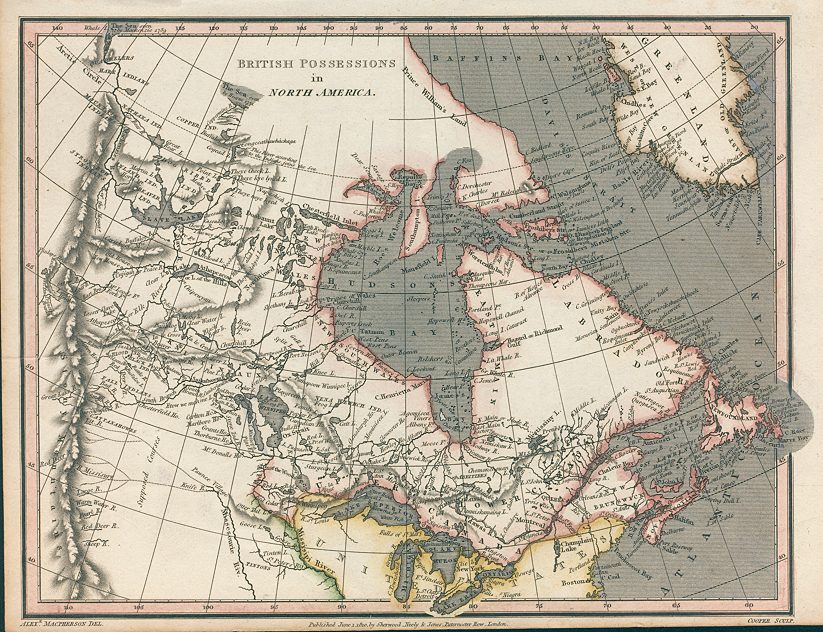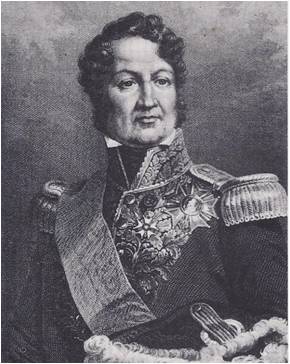THE MIDDLE EAST where Europe, Asia and Africa meet had long been known as one of the great crossroads of the world. Most of its people were Moslems, but among them were many Christians and Jews. They spoke languages as different as Arabic and Latin, Slavic and Turkish. They had little in common except that they were all subjects of the Ottoman sultan in Constantinople. The Ottoman Empire — so called after its early founder, Othman — was the last of several empires to rule over a large part of Islam. Unlike the earlier empires, it was dominated not by …
Read More »Europe Divided 1825 -1881
IN EUROPE and North America, nationalism generally led to the creation of larger states and the centralization of power. In the Austrian Empire, however, nationalism had the opposite effect; it led to the break-up of the empire and the creation of a large number of small states. The reason was that the Austrian Empire was made up of people of different nationalities, each with its own language and customs. Although the German-speaking Austrians were only about one-fifth of the total population, the ruling family, the Hapsburgs, was Austrian and Austrians held most of the important government positions. The German-speaking people …
Read More »The Unification of Italy 1831-1870
ITALY HAD long been divided into small states. All their governments, except that of the Kingdom of Sardinia, were unpopular and continued to rule largely because they were supported by Austria. Italians had a special reason for wanting freedom and unification. They could remember that once the Roman Empire had ruled the world and that later Italy had been the home of free republics. For three hundred years Italy had been invaded and plundered again and again. The last of the invaders was Austria and before the Italians could form one nation they would have to free themselves from the …
Read More »Nationalism and the Germans 1848-1870
DESPITE THE development of democracy in some parts of the world, several of the most important nations established in the nineteenth century went in a different direction and among them was Germany. In the early part of the century, the Germans lived in a number of small states and two large ones Prussia and Austria. France was at least partly responsible for this, for it had long been her policy to keep the Germans weak and divided. Napoleon, too, had followed this policy when they came under his rule, but he had given some of them practical governments and a …
Read More »Democracy in Latin America 1811-1823
DURING THE years when Napoleon and Spain were at war, Spain’s American colonies began their long fight to win independence from the mother country. Some of the earliest revolts were quickly defeated. The leaders were executed, but their deeds were remembered. In the early 1800’s, the leader of an unsuccessful revolt in Bolivia said, as he faced death: “I die; but the torch which I have lighted no one will be able to extinguish.” Francisco Miranda won fame for his unsuccessful revolt in Venezuela in 1811 and 1812. In Mexico, an old priest named Miguel Hidalgo, who wanted freedom for …
Read More »Democracy Spreads 1867-1905
DEMOCRACY IN the Scandinavian countries, Belgium, Holland and Switzerland followed the pattern of the three large democracies. Everywhere during this period there was a trend toward constitutional government, elected law-making bodies, cabinet ministers with responsibility to the people, liberty, personal rights and voting rights for all men in the lower classes. In Canada, the most difficult problem was nationalism. At the time of the Civil War in the United States, Canada consisted of a number of British provinces, most of which were independent of each other. The oldest of these was the province of Quebec in the Saint Lawrence valley. …
Read More »Another Napoleon 1848-1906
IN DECEMBER of 1848, the French elected Louis-Napoleon Bonaparte as president of the Second French Republic. What he stood for was not very clear, but to most Frenchmen that did not seem important. He was the nephew of the great Napoleon and the very sound of his name stirred them like a battle-cry. Since the defeat of the first Napoleon in 1815, there had been little in French politics to capture the imagination. As the years passed, the French looked back on the Napoleonic era as the time of their greatest glory. The writer Victor Hugo wrote poems about Napoleon. …
Read More »The Revolution of 1848; 1830-1848
LOUIS PHILIPPE always spoke of himself humbly as the “citizen king.” Although he was dignified, friendly and tried to do things that would make him popular, his government could not satisfy the needs of the people. The reason was that only one out of every thirty Frenchmen had the right to vote. The Chamber of Deputies represented only the nobles and the rich upper crust of the middle class and often it did not even debate questions that were of importance to the great majority of the people. Many Frenchmen did not like the new king. The republicans were opposed …
Read More »Democracy in France 1815-1830
AFTER THE fall of Napoleon, Louis XVIII came to the throne of France. Although his powers were limited, by following a middle-of-the-road policy he was able to rule peacefully until his death in 1824. His brother, Charles X, then became king and soon began using his influence to undo as much of the French Revolution as possible. He was able to have laws passed which required the government to pay large sums of money every year to the nobles whose land had been taken from them during the revolution. The Catholic Church was strengthened and once again priests began teaching …
Read More »Democracy in Great Britain 1789-1884
BY 1789, the first year of the French Revolution, England had traveled further along the road that would one day lead to democracy than had any other country in Europe. She had a law-making body called the Parliament which was more powerful than the king. She had a two-party system which gave the voters a choice of ideas as well as a choice of candidates. Members of the conservative party, who were called Tories, were chiefly nobles, wealthy landowners and people who strongly supported the Church of England. The Whigs, as members of the liberal party were called, consisted mainly …
Read More »








